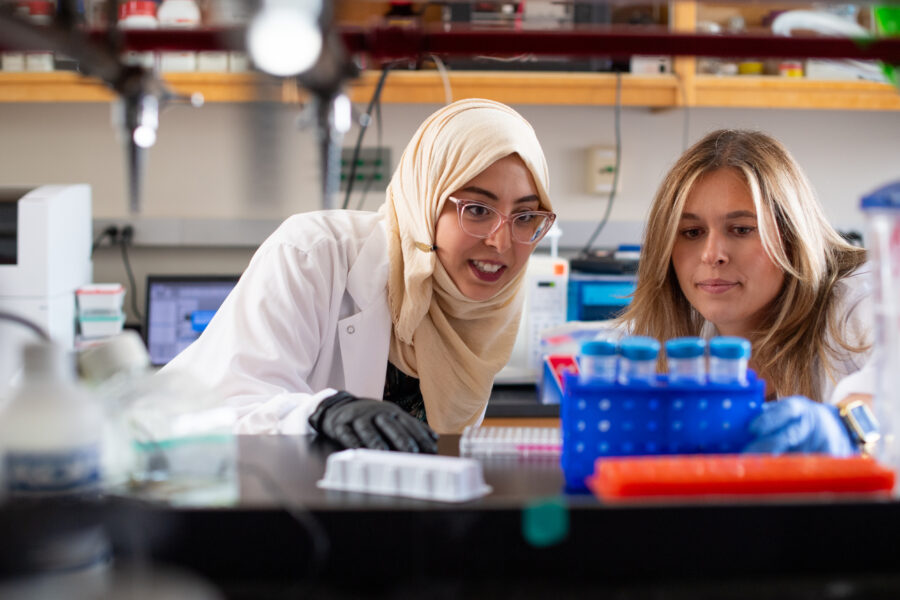Dr. Walaa Kattan

"My journey at MIT has proven to be exceptionally enriching. I've forged connections with inspiring individuals, witnessed awe-inspiring feats of labor, contributed to projects of transformative potential, and pleasantly astonished myself with the heights I've reached. This vibrant community and nurturing environment genuinely cultivate both groundbreaking research and the researchers behind it. After God, I have this fellowship to thank for pushing me towards this incredible experience.”
Dr. Walaa Kattan
Biography:
Dr. Kattan obtained her Bachelor’s degree in Life Sciences at Alfaisal University in 2015 after which she completed a Cancer Biology-Clinical & Translational Oncology Ph.D. degree from the University of Texas MD Anderson Cancer Center UTHealth Graduate School of Biomedical Sciences in Houston, TX focusing on drug/target discovery in pancreatic cancer. Her Ph.D. work focused on discovering alternative mechanisms of inhibiting the oncoprotein KRAS which is mutated in ~25% of cancers, and in more than 90% of Pancreatic Ductal Adenocarcinoma (PDAC). This work resulted in the discovery of a number of novel therapeutic targets in KRAS-driven cancers published in Nature Communications, PNAS and Life Science Alliance.
MIT Fellowship Research Abstract:
In recent years, several studies measuring expression phenotypes using bulk or single-cell RNA-seq of PDAC tumors have identified prognostically-relevant transcriptional states: the more aggressive basal state and the less aggressive classical one. Our single-cell RNA sequencing data from primary tumor biopsies have revealed that both states can coexist in one tumor and longitudinal monitoring of patient-derived organoids (PDOs) has proven that cancer cells harbor plasticity whereby they can shift from one state to another as the surrounding environment changes (Raghavan et al. 2021 Cell). Importantly, cell state impacts therapeutic response: cells environmentally shifted into the classical state are more sensitive to chemotherapy while cells environmentally shifted into the basal state are more sensitive to targeted therapies such as MEK inhibitors. My first project centers around understanding individualized tumors to ultimately determine the right course of diagnosis and treatment in a personalized medicine setting by:
- Distinguishing differential transcriptional states in pancreatic adenocarcinoma (PDAC) patient-derived organoids and commercial cell lines through single-cell RNA-sequencing.
- Identifying genetic and tumor microenvironment determinants of cell state through pooled genetic screens and high-content scRNA-seq ligand screens, respectively.
- Developing better experimental models to recapitulate cancer cell heterogeneity within PDAC patients.
My second project involves developing a more efficient method of drug screening whereby multiple drugs can be pooled into one well containing biological model of interest and computationally determining the effect of each drug and so I am working on:
- Developing more efficient drug screening methods by isolating patient-derived PBMC/organoids/cell lines, performing a 6x compressed drug screen with/without immunological stimulants and processing these samples for single-cell RNA sequencing using the 10X Genomics platform to then computationally deconvolute the effect of each drug separately on each cell type.
Professional Affiliations:
- The Broad Institute of MIT and Harvard
- The Ragon Institute of MGH, MIT and Harvard
- The Human Cell Atlas Project
- Saudi Society for Oncology Research (DAEM)
- National Postdoctoral Association
- Association of Women in Science
- Arab Women in the Academe Network
Fellowship Sponsored by:
KACST